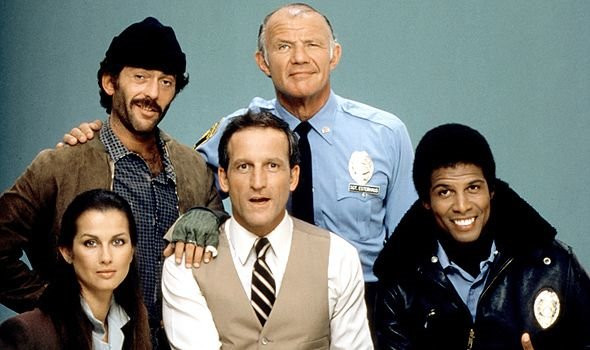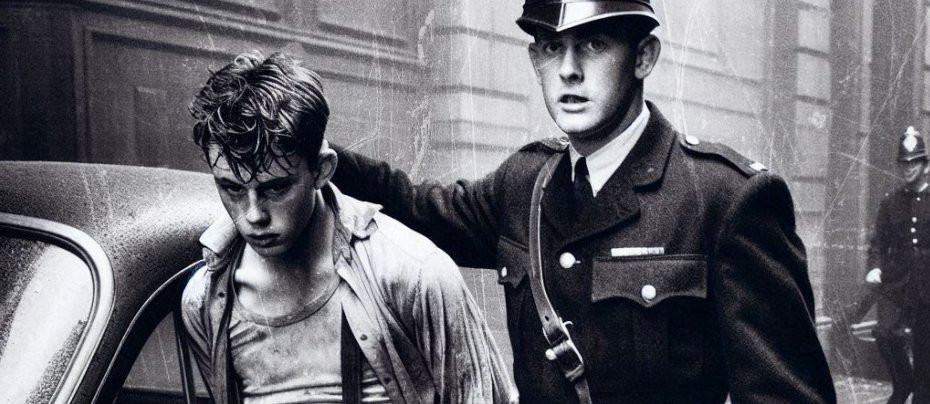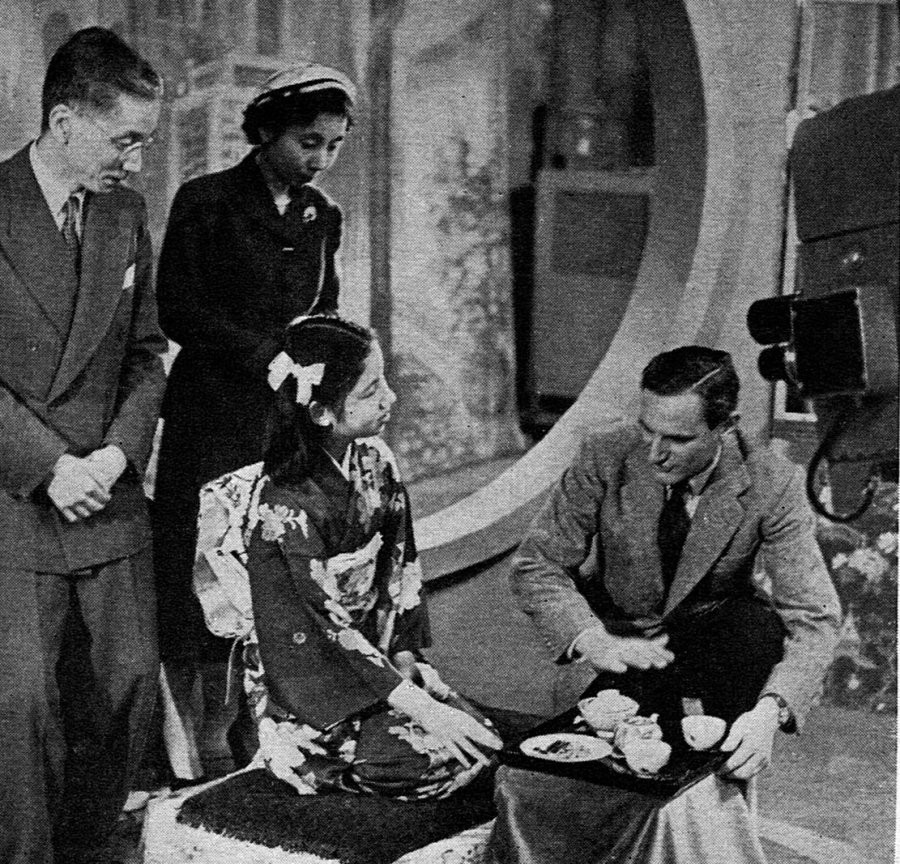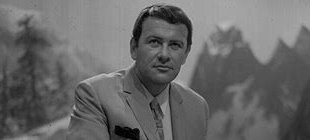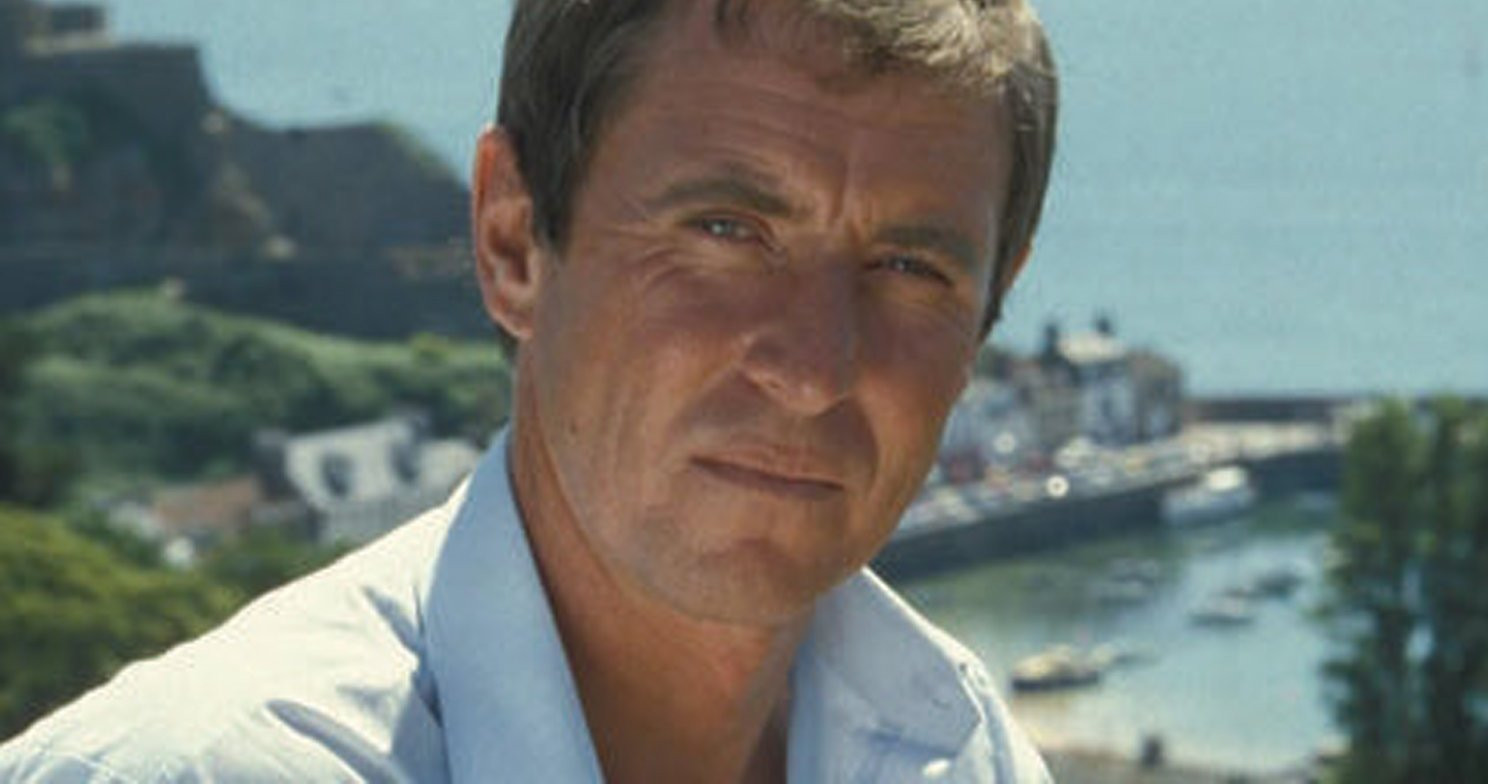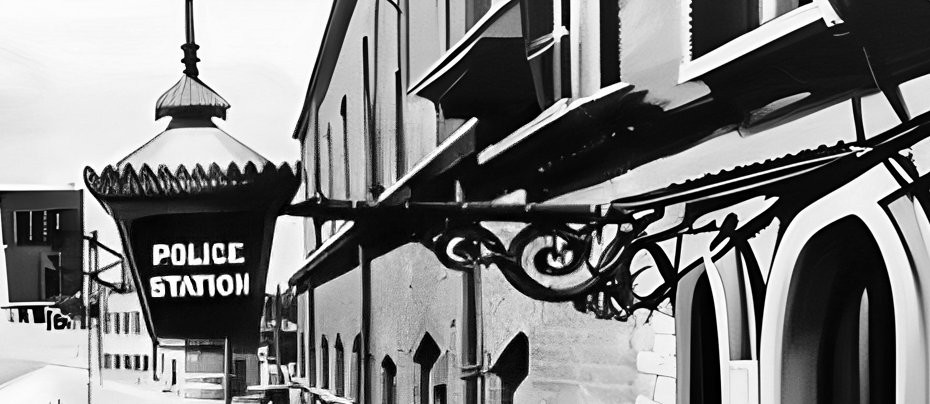
Pilgrim Street
1952 - United KingdomSix part series made by the BBC documentary department that was a direct follow on from the 1951 experimental series I Made News and seen now as a direct forerunner to Dixon of Dock Green. Although these programmes were described as documentaries because they were based on cases from real-life police files, they were in fact dramas acted out by actors. Previous police procedural series tended to focus on high-profile cases and centred round the Criminal Investigation Department officers of Scotland Yard.
Pilgrim Street was the first of these docu-dramas to revolve around the work of policemen at a suburban police station, and to feature cases, as the Radio Times of 1952 reported, that "never find their way into the pages of the Commissioner's Report and in which the police act as helpers and protectors of the public."
Writing in the Radio Times in May 1952, Jan Read, who wrote both The Blue Lamp and Pilgrim Street, stated that 'you will not find Pilgrim Street station listed in the telephone directory, though people who know their London will place it fairly closely. Long due for replacement, the building with its blue lamp, its old-fashioned cast iron fireplaces and polished Victorian brass, has an air of comfortable, if slightly priggish, Dickensian smugness.' It is linked by modern communication methods with Scotland Yard with its up-to-date (at the time) various departments such as a forensic laboratory, fingerprint department, control centre for wireless cars and its vast Criminal Records Office, 'but in the first place anything that happens on the few square miles round the station is the direct responsibility of the Chief Inspector and his staff at Pilgrim Street.
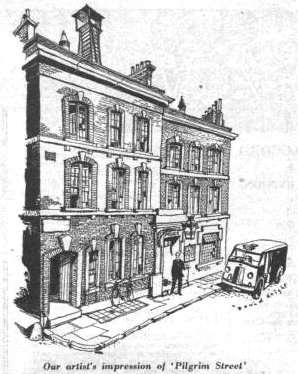
The fictitious Pilgrim Street police station was, however, just a stones-throw from Scotland Yard as the opening narrative indicated: "Our manor - our ground. It's as varied as anything in London. The railway station is in the centre there, and around it are cinemas, the shopping streets, the wharehouses, the pubs, the pawnbrokers, and the little streets. Up here, luxury flats, spacious squares and gardens, and embassies. Skirting it all, the Embankment and the river. That's our ground. Our Manor. And right here is our station: Pilgrim Street."
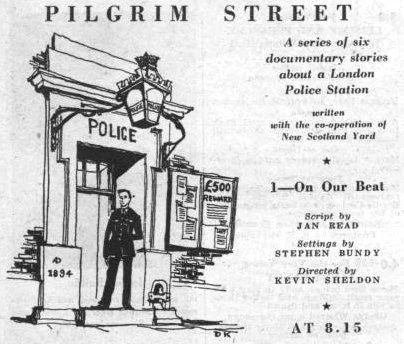
The series was originally to have been called The Blue Lamp, however BBC bosses were concerned about using a title already used by the cinema for the feature film, even though the film was undoubtedly the inspiration for this television version. Clearly producer Robert Barr was hoping the short run (Pilgrim Street ran from June to July and was produced at the newly acquired Lime Grove studios) would give rise to a long running series. However, critical reaction and lack of support from his boss, Cecil McGivern, put paid the that idea. One critic described Pilgrim Street as "ordinary to the point of dullness." Nonetheless, Pilgrim Street is an important programme in the development of the British TV police procedural drama genre being the first steps towards a series featuring the exploits of 'an ordinary copper.'
Note: There are no cast listings in any of the Radio Times entries for Pilgrim Street through its entire run.
Seen this show? How do you rate it?
Seen this show? How do you rate it?
Published on January 18th, 2019. Written by Laurence Marcus for Television Heaven.



